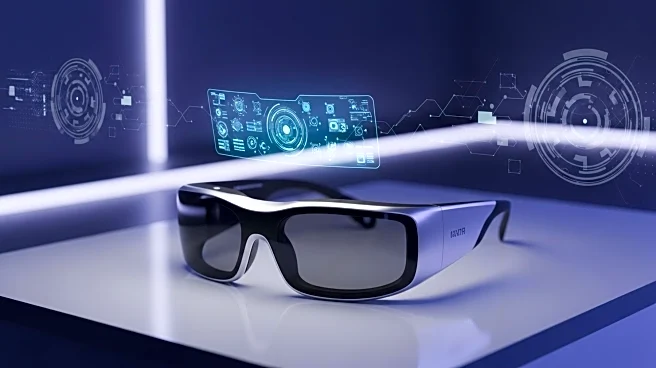What's Happening?
Meta's Orion prototype demonstrations have established a new benchmark for augmented reality (AR) overlays, challenging competitors to enhance their offerings in terms of speed and comfort. This development comes as Apple has paused its Vision Pro revamp to focus on glasses-style AR, redirecting resources to this emerging technology. The shift from bulky headsets to more practical, glasses-sized designs is gaining traction, with companies like Meta leading the charge. The Orion demos have sparked industry debate about the future of consumer AR, highlighting the potential for these technologies to integrate seamlessly into daily life. This trend is part of a broader movement towards more accessible and affordable AR solutions, with companies striving to deliver products that balance usability and cost-effectiveness.
Why It's Important?
The advancements in AR technology, as demonstrated by Meta's Orion, signify a pivotal shift in consumer tech, potentially transforming how individuals interact with digital content. The move towards glasses-style AR devices suggests a future where AR becomes a mainstream tool, enhancing everyday experiences without the need for cumbersome equipment. This shift could democratize access to AR, making it more appealing to a broader audience. The competition among tech giants like Meta, Apple, and Google to dominate this space could lead to rapid innovation and lower prices, benefiting consumers. The focus on comfort and app ecosystems over technical specifications indicates a strategic pivot towards user-friendly designs that could drive widespread adoption.
What's Next?
As the AR market evolves, consumers can expect faster product cycles and more affordable options. The competition among major tech companies is likely to intensify, with each striving to capture market share by offering superior user experiences. Developers and consumers should pay attention to which platforms gain traction, as this will influence the availability and functionality of AR applications. The ongoing development of AI and app distribution platforms will play a crucial role in shaping the future of AR, determining how these technologies are integrated into daily life. The success of these initiatives will depend on the ability of companies to deliver practical, cost-effective solutions that meet consumer needs.
Beyond the Headlines
The shift towards AR glasses raises important questions about privacy and data security, as these devices have the potential to collect vast amounts of personal information. The integration of AR into daily life could also lead to cultural shifts, as individuals increasingly rely on digital overlays to enhance their reality. This trend may influence social interactions and the way people perceive the world around them. Additionally, the environmental impact of producing and disposing of AR devices is a consideration that companies and consumers will need to address as the market grows.










